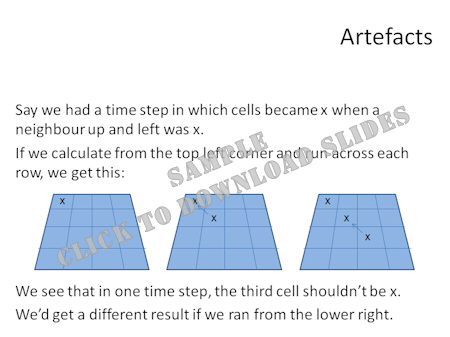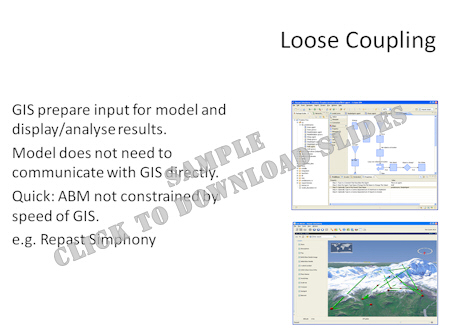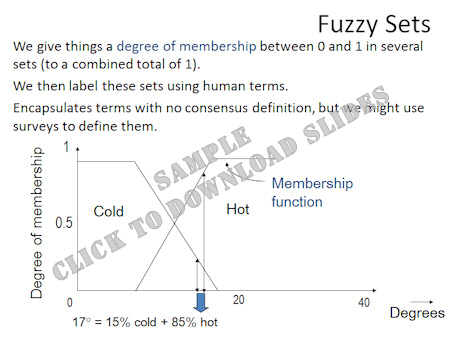Modelling: Agent-Based Modelling
[Part 12 of 12]
In this part, we'll look in detail at Agent-Based Modelling, and more broadly at Artificial Intelligence techniques.
First up, let's look at some of the issues associated with Agent-Based Modelling which will dicate your approach. Many of these issues are general to other kinds of modelling.
ABM issues (powerpoint)
Further info:
Examples of issues caused by non-random numbers are common in cryptography.
Papers:
Yuan, May (1996) Temporal GIS and Spatio-Temporal Modeling Third International Conference/Workshop on Integrating GIS and Environmental Modeling Santa Fe, New Mexico, January 21-25, 1996.
Next, we'll look at some frameworks designed to help with some of these issues.
Further info:
Frameworks:
Netlogo.
RePast, FAQ, and info on
Groovy.
MASON.
Other:
Ascape.
ABLE.
Modelling4All.
Agent Analyst.
Papers:
Railsback, Steven F., Lytinen, Steven L., and Jackson, Stephen K. (2006) Agent-based Simulation Platforms: Review and Development Recommendations Simulation 82:9.
Tobias, Robert, and Hofmann, Carole (2004) Evaluation of free Java-libraries for social-scientific agent based simulation Journal of Artificial Societies and Social Simulation 7(1).
ABM frameworks (powerpoint)
Papers:
Finally, we'll look at decision making in ABM -- the "Intelligent" in "Intelligent Agent-Based Modelling". In doing this, we'll also touch on a number of Artificial Intelligence techniques.
Further info:
Prolog Interfaces to other languages, including Java.
You can find out more about SHRDLU, and download code (including a Java version) at Stanford Uni
More on Dublin Core.
More on the Semantic Web.
RDF.
OWL 2.
Intro to RSS.
FOAF Project and foaf-a-matic.
FIPA standards (Foundation for Intelligent Physical Agents).
Cognitive biases
Bart Kosko's webpage.
Fuzzy Logic tutorial.
Info on Reverend Thomas Bayes.
Expert systems Software:
Free demo and tutorials
OpenExpert
Lists of commercial and freeware tools:
List1,
List2.
Soar
CLARION
ACT-R (see also the Java version)
Papers:
Evans, A.J. (2008) Geography as War and Peace Workshop on Geographic Ontologies Grounding and Vagueness, Ilkley, UK, 17-18 April 2008.
Sentz, K. and Ferson, S. (2002) Combination of Evidence in Dempster–Shafer Theory Sandia National Laboratories.
Shafer, G. (2002) Dempster–Shafer theory.
Urban, C. (2000) PECS: A Reference model for the simulation of multi-agent systems In R. Suleiman, K. G. Troitzsch and N. Gilbert, editors, Tools and Techniques for Social Science Simulation. Physica-Verlag, Heidelberg.
Urban, C. and Schmidt, B. (2001) PECS – Agent-Based Modelling of Human Behaviour AAAI Technical Report FS-01-02.


